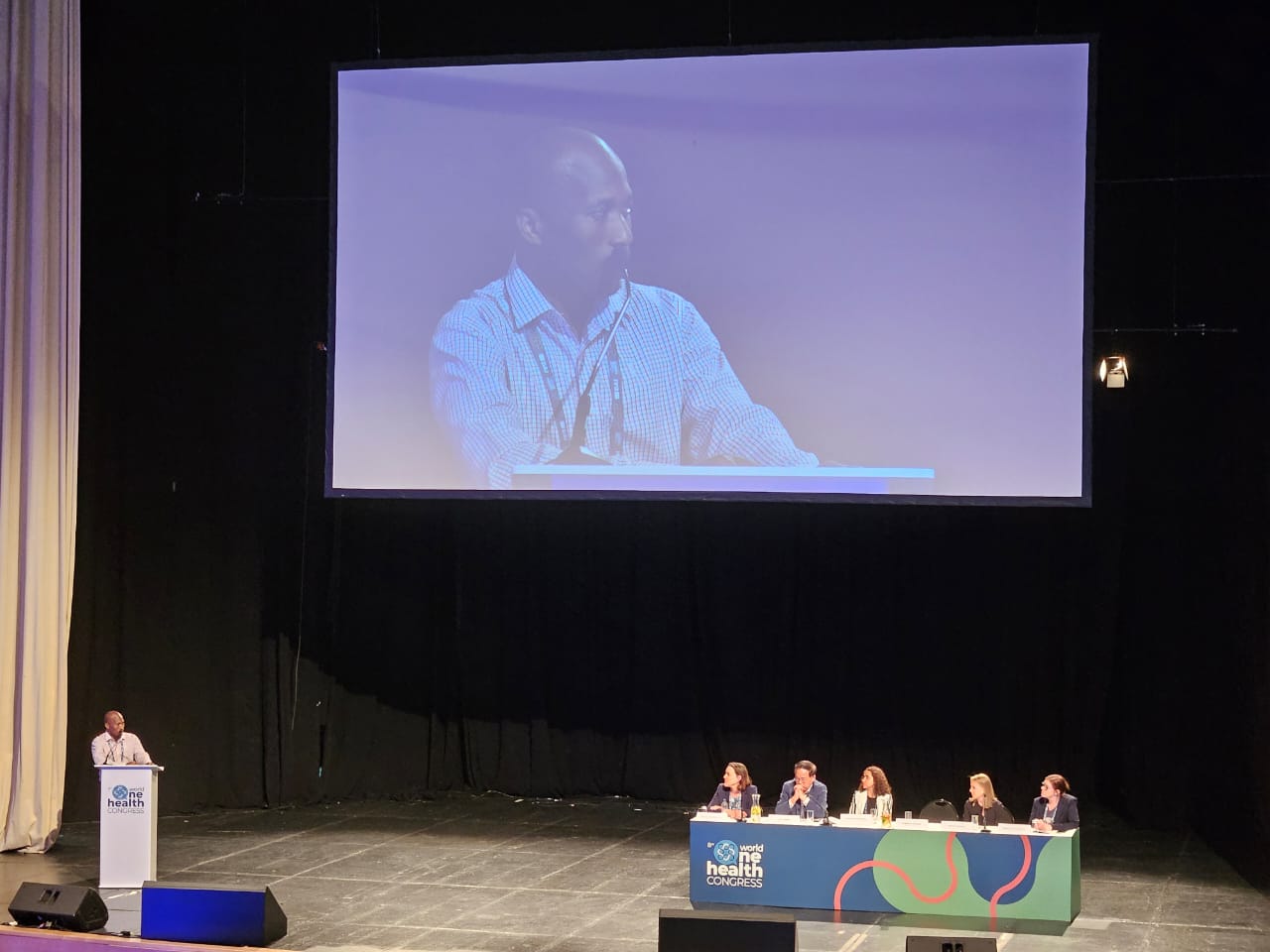
DISSEMINATION: Ifakara shares rabies research at 8th World One Health Congress

Ifakara Health Institute took part in the 8th World One Health Congress held in Cape Town, South Africa, from September 19th to 23rd 2024. The event, hosted at the Cape Town International Convention Centre, brought together global experts in the One Health field, an approach that recognizes that the health of people is closely connected to the health of animals and our shared environment.
Ifakara used this important platform to share crucial research findings from ongoing studies on rabies in Tanzania.
Understanding how rabies spreads in southeast Tanzania
Dr. Kennedy Lushasi, a rabies research scientist at Ifakara and his team presented a study focused on understanding how rabies spreads among different hosts in Southeast Tanzania. He stated “The research has important implications for One Health control strategies and highlights the need for sustained mass dog vaccination programs to eliminate rabies in Tanzania and other regions facing similar challenges.”
The study found that 44% of rabies transmissions happen between dogs, while 32% occur among wildlife. The rest involve different species. This shows how complex rabies transmission can be in environments with multiple animal hosts.
In Southeast Tanzania, dogs are the main carriers of rabies, even though wildlife also has a high rate of the disease. The ongoing spread of rabies raises concerns about it spilling over to jackals, which could make controlling the disease more difficult.
The research presented at the congress was based on data collected from probable rabies cases between 2011 and December 2022. Hospital records of animal-bite patients presenting to healthcare facilities were used as sentinels for animal contact tracing.
Need for mass dog vaccination
He expressed that the study emphasizes the need for ongoing mass dog vaccination to eliminate rabies in Tanzania and other affected areas. Between 2011 and 2017, the researchers observed a significant decrease in rabies cases among humans and animals, thanks to widespread dog vaccination. This reduction in cases lowered public health and conservation risks.
However, after the vaccination program ended, there was a rise in rabies cases among dogs, leading to more human exposures and deaths. This highlights the importance of maintaining regular vaccination programs to prevent rabies from resurfacing.
Next Steps: United Against Rabies Forum
Following the conclusion of the World One Health Congress, IHI representatives will participate in the United Against Rabies Forum, scheduled from November 23rd to 25th. This forum is a critical platform where stakeholders working on rabies control meet annually to discuss progress and strategize on matters related to rabies eradication.
The forum is led by the tripartite organizations—the World Organisation for Animal Health (WOAH), the World Health Organization (WHO), and the Food and Agriculture Organization (FAO)—alongside Gavi, the Vaccine Alliance. It includes participation from all relevant institutions and representatives from the governments of rabies-endemic countries.
IHI’s continued engagement in such high-level discussions and the dissemination of its research findings underscores its commitment to advancing global efforts to control and eliminate rabies, in line with the One Health approach.
